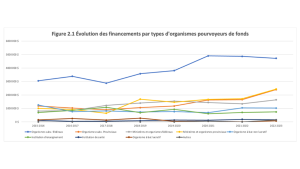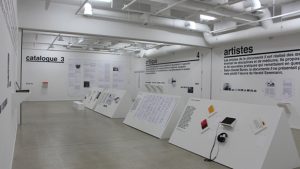Université du Québec en Outaouais (UQO) invites international research collaborations.
The Université du Québec en Outaouais (UQO) is a small regional university and member of the Université du Québec Network. With our nine sister universities, together we form the largest French-language university in the Americas. Our accessible and innovative network of universities is building the society of tomorrow. Through training, research and creation, we transform lives, and we are changing the world. We are a preferred partner of communities and First Peoples across the province of Québec.
Created 40 years ago, UQO is today counting on the expertise of over 260 full-time professors affiliated in 13 departments. Altogether, they cover several disciplines in the fields of natural sciences and engineering, health sciences, and human and social sciences. UQO hosts on its three campuses more than 7,000 students (including 1,200 international students), as well as a myriad of research projects and initiatives. This short paper offers a general overview of our international research ecosystem and areas of excellence, while showcasing how many of these areas intersect with the second pillar of the Horizon Europe programme: ‘Global challenges and European industrial competitiveness’.
Areas of expertise and strategic fields of international research at UQO
Multidisciplinarity is the essence of international research at UQO. We bring together various expertise and disciplines to concretely advance science by contributing innovative solutions to society. Ecology, particularly forest ecology, as well as natural sciences, are one of our most significant areas of research in terms of funding and impact.
Many of our researchers in this sector work in areas that directly connect with the ‘Food, bioeconomy, natural resources, agriculture and environment’ cluster of Horizon Europe’s Pillar II, as well as the ‘Climate, energy and mobility’ cluster. For instance, we are very proud to see our Institute of Temperate Forest Sciences (ISFORT) collaborating across Canada and abroad, to preserve and enrich forest ecosystems locally, nationally, and internationally. Applying an economical approach to sustainable development has also fostered strong connections and projects involving collaborations between our departments of natural sciences, social sciences, health sciences, and arts. For example, a multidisciplinary project, CRABE (i.e. Centre de recherche appliquée sur la biodiversityé et les écosystèmes) chaired by Professor Jérôme Dupras supports subnational governments, the private and financial sectors, and other stakeholders across Québec on issues of biodiversity and adaptation to the environmental crisis. This research partnership is financed by the Fonds de recherche du Québec (FRQ). Our talented researchers work on important, world-changing research, that has a real impact on society.
Research on the many facets of cybersecurity is a second area in which our researchers excel, and which is highly strategic for the global society and for our university. We collaborate with many industrial partners and universities across Canada to better understand the social implications of cybersecurity on both individuals and organisations. In this area, several of our researchers conduct research that addresses challenges raised in the ‘Civil security for society’ and the ‘Digital, industry and space’ clusters of Horizon Europe’s Pillar II. Our FRQ-funded interdisciplinary Center for research and Innovation on Cybersecurity and Society (CIRICS), for instance, is a hub for research at the intersection of artificial intelligence (AI), software development, cyberpsychology, and organisational management. UQO is also very proud to be the first member of the Université du Québec network to hold a Fulbright-Canada Research Chair in Cybersecurity. Another research hub on aspects of cybersecurity, the INRS-UQO joint research Unit in cybersecurity brings together a number of world-class researchers in the development of digital technologies. UQO is a member of CyberEco, the National Consortium of Cybersecurity and INSECM.
Strong, impactful and sustainable community and regional development is another field of expertise we are proud to foster through our international research initiatives. Thanks to our many partnerships with community actors, UQO actively contributes to regional economic development. We also have strong ties with commercial partners, notably in the battery and innovative transport sector in our Laurentides region. In this area, much of our work intersects with the ‘Culture, creativity and inclusive society’ cluster of Horizon Europe’s Pillar II, but also the ‘Health’ cluster. Notably, UQO is the first university of the Network of the Université du Québec having institutionalised an Observatory for Regional Development (ODO). ODO helps the policymakers, especially the municipal and provincial administrations, by providing them various sources of research data and results that support the decision-making process. We are affiliated to regional health and social services administrations (CISSSO and CISSSLAU). Very recently, UQO and the City of Gatineau created a municipal scientific advisory council that is composed of five UQO professors who will support the municipality planning and decision-making on societal issues and challenges faced by the citizens and the municipality authority.
State of research and active projects
As a small institution, UQO is managing annually approximately C$20m of research funds. Our Office of Research and Creation oversees the activity of our research institute, 17 research chairs, 14 networks or centres of research, 27 labs and three observatories. As a place of creation, we are also very proud to promote arts and culture. UQO has developed the first Canadian undergraduate programme specialised in graphic storytelling. Our School of Arts and Culture is offering a graduate programme in museum management which is another field of our research expertise. As a living lab, the Galerie UQO is an institution which organises five exhibitions a year in collaboration with local artists and cultural organisations.

UQO obtained a sixth Canada Research Chair in 2023-2024: the Canada Research Chair in the socioecology of conservation and management of fish and wildlife, directed by Professor Katrine Turgeon. The chair aims to develop tools and knowledge to better understand the interactions between humans and nature. It adopts a transdisciplinary approach and collaborates with various stakeholders to propose conservation solutions adapted to social and environmental realities.
Professor Christian Messier, from ISFORT, and his team benefit from $7.5m in funding from the Natural Sciences and Engineering Research Council of Canada (NSERC) through the ‘Alliance’ programme, in collaboration with the MITACS programme and several forest products companies, First nations communities, private and non-profit organisations in Canada. Bringing together seven universities and 40 collaborators on 22 Canadian sites, it is one of the largest forest research projects ever undertaken in the country, aiming to improve the resilience of forests in the face of climate changes and to promote sustainable management of forest resources.
Professor Marie-Laure Dioh, in the Department of Administrative Sciences at UQO, became head of the Social and Solidarity Economy Research Network, accompanied by three other professors and alongside around 50 co-researchers and collaborators in Québec and internationally. The network seeks to promote the social and solidarity economy in Québec by increasing collaborations, exchanges of ideas and innovations, drawing inspiration from current initiatives and future research.
The ‘Réseau Inondations InterSectoriel du Québec’ (RIISQ), which is now co-directed by Professor Nathalie St-Amour of UQO, saw its mandate and funding renewed in 2023-2024. The RIISQ focuses on advanced research to manage flood risks and their impacts in the context of climate change. It aims to provide solutions to affected communities and to strengthen Québec’s preparation and protection against these events.
What’s next? Upcoming research opportunities at UQO
As a rapidly growing research institution, we are observing the emergence of new research hubs and systems. The following strategic areas are garnering increasing attention at UQO.

Sustainable development and environment protection are central concerns in our 21st-century society. Studying sustainable development and ecosystem adaptation to climate change requires a deeper understanding of ecosystem resilience and protection, as well as societal resilience to global changes (e.g., climate). In addition to contributions from ecological sciences and natural science approaches, building our knowledge must benefit from multidisciplinary collaboration to address economic issues (e.g., green jobs, circular economy) and social issues (e.g., access to clean water, reducing inequalities, eco-anxiety). By partnering with societal actors who share these concerns, our researchers can advance innovative projects with significant impact for Québec and global society. In this area, we strive to foster new collaborations within the ‘Food, bioeconomy, natural resources, agriculture and environment’ and ‘Climate, energy and mobility’ clusters of Horizon Europe.
Digital transformation and energy transition are two key issues for Québec and Canada, and they are closely interrelated. At UQO, this theme is particularly relevant to our computer science and engineering researchers, who are working on both the thermal physics of computer micro-components and the dematerialised digital processes that underpin the transformation of our use of information and communication technologies. To adequately address the emerging issues of the new digital society, our approach must be intersectoral and interdisciplinary. Our researchers can thus push the boundaries of knowledge by innovating jointly in the fields of technical cybersecurity, artificial intelligence, organisations management, and human behaviour. By accelerating our research on new energies while ensuring their safety and security, UQO can position itself as a preferred partner for several industry players and propel innovation. In this area, we strive to foster new collaborations within the ‘civil security for society’ and the ‘Digital, industry and space’ clusters of Horizon Europe.
Health, wellbeing, and social inclusion are priorities at the national and provincial levels. Population health depends on the concerted action of several actors, particularly in physical health (e.g., nursing, medicine), psychosocial health (e.g., family health, prevention initiatives), and social economy (e.g., solidarity economic models, reducing homelessness). The principle of ‘One Health’ proposes adopting an integrated approach based on the interconnectedness of human, animal, and environmental health. By adopting this principle, researchers at UQO can create new research collaborations that transcend disciplines, ranging from law to environmental sciences, education to administrative sciences, engineering to the arts. In this area, we strive to foster new collaborations within the ‘Culture, creativity and inclusive society’ and ‘Health’ clusters of Horizon Europe.
If you are interested in our international research ecosystem and wish to develop, among other things, Horizon Europe collaborations with our researchers, we invite you to visit us on the web and to contact our Office of Research and Creation at: decanatrech@uqo.ca.
Please note, this article will also appear in the 20th edition of our quarterly publication.





